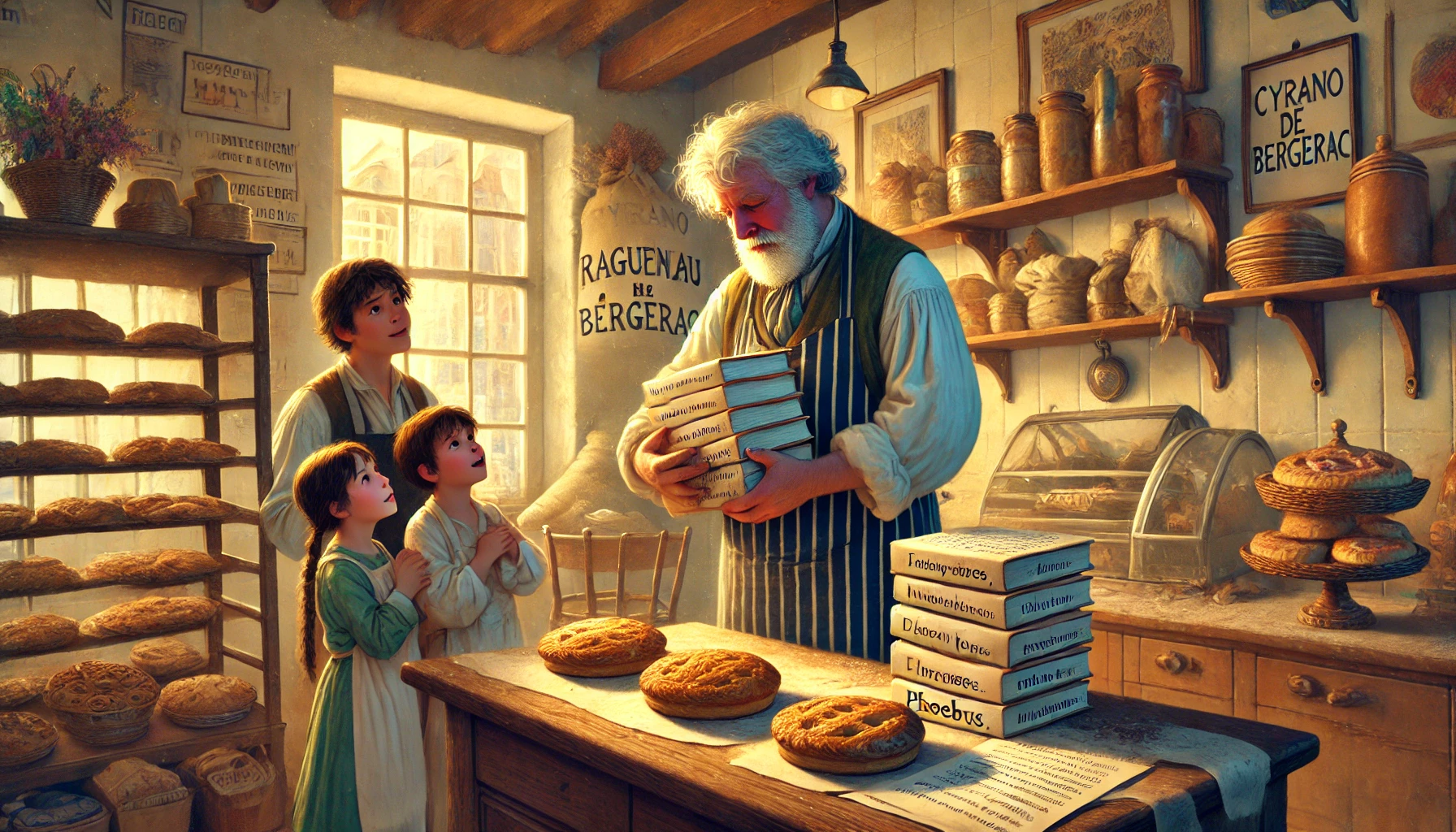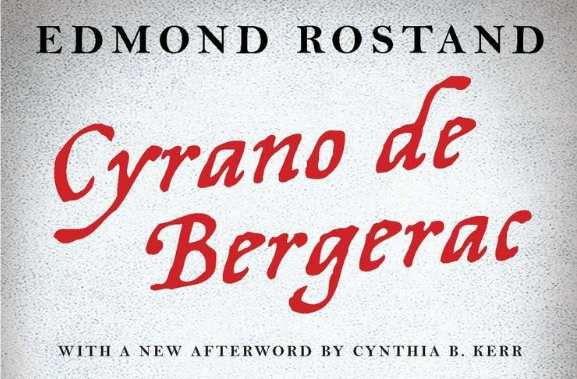Scene 2. III.
byScene 2. III. in Cyrano de Bergerac brings a delightful yet emotional moment as it takes place in Ragueneau’s bakery, filled with both warmth and literary passion. Ragueneau, a baker by trade, is deeply invested in literature, and this is revealed when two children come into the shop asking for three pies. As he prepares the order, his distress over using his precious poetry bags as packaging highlights his deep attachment to his written works. Each bag, containing poems that reflect his love for the art, such as musings on Ulysses and Penelope or the golden locks of Phoebus, represents a personal connection to his creations. His reluctance to part with these bags shows a conflict within himself, caught between his passion for poetry and his practical life as a baker, where the needs of his business clash with his emotional attachment to the written word.
Lise, presumably Ragueneau’s wife, takes a more pragmatic approach, encouraging him to make a decision quickly as she busies herself with arranging the plates. Her impatience contrasts sharply with Ragueneau’s sentimental nature, creating a humorous dynamic between the two. In a moment of desperation to keep his poetry, Ragueneau offers the children extra pies in exchange for the return of the “Sonnet to Phillis,” which underscores his preference for art over financial gain. The scene takes a lighthearted turn as Ragueneau joyfully retrieves his sonnet, only to find it stained with butter, symbolizing the inevitable blending of his poetic aspirations with the mundane reality of his bakery. This small moment of comedy also highlights the tension between Ragueneau’s love for poetry and his business responsibilities, blending humor with the underlying theme of sacrifice.
The arrival of Cyrano shifts the scene’s tone from humor to one of heightened emotion. Cyrano, entering the bakery with urgency, asks Ragueneau the time, signaling that something important is about to unfold. His anxious demeanor adds an air of suspense to the scene, implying that his visit is not a casual one but rather tied to something significant. Ragueneau, ever the hospitable and respectful host, responds with care, unaware of the emotional gravity that Cyrano’s presence brings. Cyrano’s sense of urgency and underlying tension immediately capture the reader’s attention, leaving them wondering what event or decision is brewing in the background.
This chapter perfectly balances light-hearted moments with deeper emotional undercurrents, as Ragueneau’s affection for his poetry is contrasted with the demands of running his bakery. The conflict between art and commerce is evident, as Ragueneau struggles to hold onto the poetry that means so much to him while also dealing with the practicalities of life. Cyrano’s sudden entrance provides a shift in mood, introducing an element of mystery and anticipation. His anxiety about the time and his pressing concern raise questions, which immediately captivate the reader’s attention. The scene expertly combines humor, sentimental value, and dramatic tension, as the characters’ personalities and priorities are revealed through their actions and interactions.
The blend of humor and melancholy throughout this scene enriches the narrative, showing how Ragueneau’s devotion to art intersects with the reality of his life. His attachment to his poetry bags, even as he gives them away in exchange for pies, reflects a deeper struggle between his dreams and his daily survival. This theme resonates with the broader context of Cyrano de Bergerac, where characters are often forced to choose between their ideals and the necessities of life. Cyrano’s presence serves as a catalyst, introducing a level of urgency and significance to the moment, heightening the emotional stakes and creating a sense of anticipation for what comes next.
The characters in this chapter—Ragueneau, Lise, and Cyrano—each reveal a facet of their personalities that adds depth to the story. Ragueneau’s tender devotion to poetry, Lise’s practical nature, and Cyrano’s emotional turmoil are skillfully portrayed through their dialogue and actions. As the scene progresses, it becomes clear that each character is driven by their own set of values and struggles, yet they are all linked by their desire for connection, whether through art, duty, or love. Cyrano’s arrival introduces a subtle tension, as the reader is left to wonder how his personal conflict will unfold and how it will affect the interactions that follow. The scene sets the stage for further exploration of the themes of love, sacrifice, and identity, which will continue to shape the narrative as it develops.


